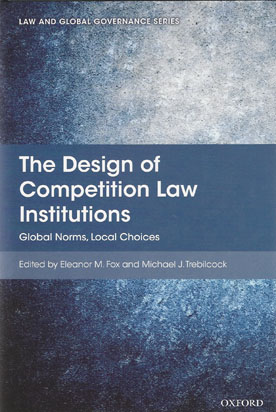
Competition (or antitrust) law is national law. More than 120 jurisdictions have adopted their own competition law. Is there a need for convergence of the competition law systems of the world?
Much effort has been devoted to nudging substantive law convergence in the absence of an international law of competition. But it is widely acknowledged that institutions play as great a role as substantive principles in the harmonious - or dissonant - application of the law.
This book provides the first in depth study of the institutions of antitrust. It does so through a particular inquiry: Do the competition systems of the world embrace substantially the same process norms? Are global norms embedded in the institutional arrangements, however disparate?
Delving deeply into their jurisdictions, the contributors illuminate the inner workings of the systems and expose the process norms embedded within. Case studies feature Australia/New Zealand, Canada, Chile, China, Japan, South Africa, the USA, and the European Union, as well as the four leading international institutions involved in competition: the World Trade Organization, the Organization for Economic Cooperation and Development, the United Nations Conference on Trade and Development, and the International Competition Network; and the introductory and synthesizing chapter by the directors of the project draws also from the new institutional arrangements of Brazil and India.
The book reveals that there are indeed common process norms across the very different systems; thus, this study is a counterpart to studies on convergence of substantive rules. The synthesizing chapter observes an emerging 'sympathy of systems' in which global process norms, along with substantive norms, play a critical role.
The book provides benchmarks for the field and suggests possibilities for future development when the norms are embraced in aspiration but not yet in practice. It offers insights for all interested in competition law and global governance.